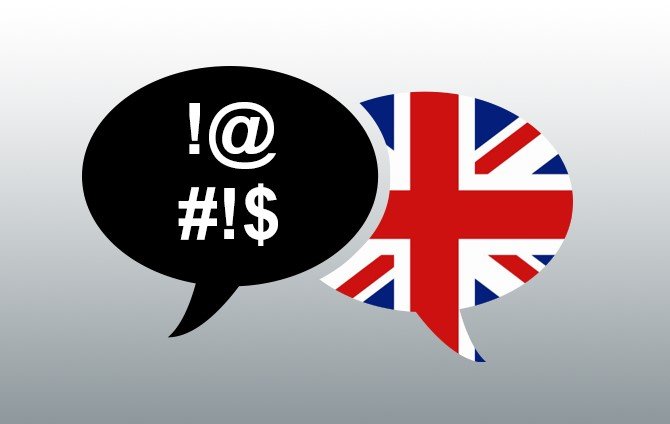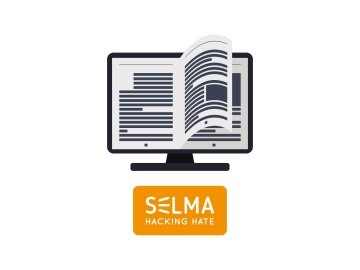Online hate speech in the UK, as well as efforts to address it, must be understood within the broader context of hate crime. As stated on its official website, The Crown Prosecution Service (CPS) defines hate crime as "a range of criminal behaviour where the perpetrator is motivated by hostility or demonstrates hostility towards the victim's disability, race, religion, sexual orientation or transgender identity." While hate crime is not a new phenomenon in the UK, there have been concerns about rising levels in recent years.
Just as there is no single hate crime legislation in either England, Wales, Scotland or Northern Ireland, there is no single hate speech legislation in any of the nations. Moreover, cases of hate speech frequently get lumped together with hate crime cases making the concepts difficult to disentangle.
The "stirring up" offences [1], which legislate around public conduct (including speech or published material) intended or likely to incite hatred, would most clearly map onto the hate speech concept [2]. However, it would be misleading to only focus on this legislation. Wider criminal legislation in each of the UK nations specifies hatred on the basis of a victim's protected characteristic as an aggravating factor when it comes to prosecuting and sentencing.
Challenges in existing legislation
Criticism of the UK's hate crime and hate speech legislation has centred mainly around its fragmented nature, with calls to consolidate it into a single legislative framework [3]. The lack of consolidated legislation means some hate crimes are prosecuted more or less harshly depending on the protected characteristic of the victim, effectively creating a "hierarchy of hate" [4]. Calls have been made for "stirring up" offences to cover the same characteristics as the aggravation law.
Concerns that the gap between existing aggravation legislation and "stirring up" legislation effectively results in a hierarchy of hate are arguably reinforced further by the fact that even among the characteristics included within the "stirring up" offences, the thresholds for prosecution are higher for some characteristics than others. However, it should be emphasised that this is very much an evolving landscape.
The prosecution process for hate crime has also being criticised arguing that hate speech laws are poorly understood by authorities. For instance, following interviews with the Police Service of Northern Ireland (PSNI) as part of its research, the Northern Ireland Human Rights Commissionreported that the criminal justice agencies showed "minimal knowledge" about hate speech laws which called into question their ability to properly implement them. Others have lamented the tendency of victimised minorities to under-report hate incidents [5] and argued that legislation is not fit for purpose for the digital age [6].
Recent developments and relevant programmes
Indeed, significant discussion continues about the unique challenges involved in effectively tackling hate crime that occurs online. In 2015, a Minister for Internet Safety and Security was appointed, with tackling online hate included within their portfolio. In January 2018, a National Online Hate Crime Hub was launched, staffed by a team of specialists tasked with assessing and managing cases of online hate and referring to the appropriate authorities for handling.
At the start of 2018, the Department for Digital, Culture, Media and Sport introduced the Digital Charter with the stated goals of making the UK "both the safest place to be online and the best place to start and grow a digital business". Listed among its key focus areas was the issue of "online harms", and specifically "protecting people from harmful content and behaviour". Growing out of this focus was the government's Internet Safety Strategy Green Paper (2018) which sets out a number of planned measures to tackle harmful content. Notably, the Internet Safety Strategy puts forward a draft code of conduct for 55 social media companies. The code emphasises a number of core principles that social media companies should follow. These include having clear and accessible terms and conditions, clear reporting procedures and signposting, as well as providing feedback to those who report content (following the "comply or explain" principle) so that users know what has happened to their report.
Meanwhile, a number of ongoing prevention and intervention programmes aim to tackle the issue from an education or awareness-raising perspective, for instance:
- No Love for Hate, Stop Extremist Content Spreading Online, led by Educate Against Hate.
- School classes and workshops about causes and consequences of racism, led by Show Racism the Red Card.
This article has been written based on the research report "Hacking Online Hate: Building an Evidence Base for Educators", which was published by the SELMA project on Safer Internet Day (Tuesday, 5th February 2019).
Read the full UK perspective on hate speech or the whole report here.
[1] England, Wales and Scotland: The Public Order Act 1986, Part III, Articles 18-23; Northern Ireland: Public Order (Northern Ireland) Order 1987, Part III.
[2] Walters, M.A., Brown, R., & Wiedlitzka, S. (2016). Causes and motivations of hate crime. Equality and Human Rights Commission. Research report 102. Retrieved from https://www.equalityhumanrights.com/en/publication-download/research-report-102-causes-and-motivations-hate-crime.
[3] Bakalis, C. (2018). Rethinking cyberhate laws. Information & Communications Technology Law, 27(1), 86-110.
Walters, M.A., Wiedlitzka, S., Owusu-Bempah, A., & Goodall, K. (2017). Hate Crime and the Legal Process: Options for Law Reform – Final Report. Retrieved from https://www.sussex.ac.uk/webteam/gateway/file.php?name=final-report---hate-crime-and-the-legal-process.pdf&site=539.
Lord Bracadale. (2018). Independent Review of Hate Crime Legislation in Scotland: Final Report. Scottish Government, Justice Directorate. Retrieved from http://www.gov.scot/Publications/2018/05/2988/downloads.
[4] Isaac, D. (2016). Hierarchy of hate crime is undermining confidence in the law. Retrieved from https://www.equalityhumanrights.com/en/our-work/news/hierarchy-hate-crime-undermining-confidence-law.
[5] Hall, E. (2017). Why disability hate crimes are woefully under-reported. The Conversation, 25 October. Retrieved from https://theconversation.com/why-disability-hate-crimes-are-woefully-under-reported-85964.
Hume, C. 2017. Hate crime drastically under-reported - South Wales Police. BBC News, 1 November. Available from: https://www.bbc.co.uk/news/uk-wales-41818799 [Date of access 12 June 2018].
[6] Bakalis, C. (2018). Rethinking cyberhate laws. Information & Communications Technology Law, 27:1, 86-110. Available from: https://www.tandfonline.com/doi/abs/10.1080/13600834.2017.1393934 [Date of access 13 June 2018].
Stray, M. (2017). Online Hate Crime Report 2017. Galop. Retrieved from http://www.galop.org.uk/wp-content/uploads/2017/08/Online-hate-report.pdf.






